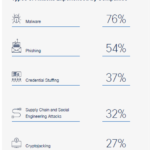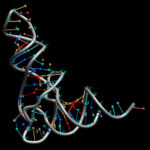Peter Diamandis shared an email blast about dire headlines that keep us on edge: the war in Ukraine, food and gasoline prices, climate change, and the neverending pandemic. Getting away from bad news is difficult, it appears, because of the way we are wired. Mass media feeds the bad far more than the good.
In his missive, Peter talks about Matt Ridley, a zoologist, who wrote and published The Rational Optimist in 2010. The book takes a profoundly optimistic view of human progress, a counterblast to the prevailing pessimism of our day. Ridley coined the phrase “moaning pessimism” to describe the current state.
The following summarizes Peter’s talking points joined by some editorializing on my part. I welcome your optimism, less so your pessimism in any comments you wish to share with my subscribers and casual visitors and readers.
Is there any reason for optimism today asks Peter? A glance at current headlines is enough to set anybody on edge. And with an endless media stream of bad press that includes online and hard copy, it’s hard to be optimistic. What makes all of this worse is that evolution has shaped us to be acutely aware of danger so the bad gets larger mindshare than anything good and our ability to appreciate the positive that is happening is compromised.
The Abundance Mindset
Peter is the author of an intriguing book called Abundance: The Future is Better Than You Think, which I highly recommend you read. It describes what is an abundance mindset, one that shifts from cynicism to hope, and from pessimism to optimism. This mindset shift is especially important when tackling challenging problems.
Peter cites Matt Ridley in his email blast. Matt is an award-winning author of a book called The Rational Optimist. He’s an Oxford-trained zoologist and science writer. He specializes in the origins and evolution of human behaviour.
Ridley describes how we are obsessed with the bad when he states, “It’s incredible, this moaning pessimism, this knee-jerk, things-are-going-downhill reaction from people living amid luxury and security that their ancestors would have died for. The tendency to see the emptiness of every glass is pervasive. It’s almost as if people cling to bad news like a comfort blanket.”
Ridley blames our cognitive biases and evolutionary psychology for this mindset. He identifies cognitive bias as “loss aversion,” a tendency for people to regret a loss more than a similar gain. Loss aversion is often what keeps people stuck in ruts. It’s an unwillingness to change bad habits for fear that the change will leave them in a worse place than before.
But loss aversion isn’t the only thing Ridley contends. He notes “there could be an evolutionary psychology component. We might be gloomy because gloomy people managed to avoid getting eaten by lions in the Pleistocene.”
Ridley believes that this divorce from reality is doing us more harm than good. So he sees the need for us to fight back as he states, “It’s become a habit now for me to challenge such remarks [bad news]. Whenever somebody says something grumpy about the world, I just try to think of the other side of the argument and—after examining the facts—again and again, I find they have it the wrong way round.”
This conversion to positive thinking doesn’t happen overnight for anyone. The answer states Ridley is to look at the data and the science to counter the glum future argument.
How Applying Science and Data Leads to an Optimistic Mindset
About 25 years ago, Ridley noticed that the issue of acid rain had doom experts predicting forests would be decimated in the near future. Acid rain was once considered the planet’s most dire environmental threat. It was caused by the burning of fossil fuels, particularly coal, causing large amounts of sulphur dioxide and nitrogen oxides to accumulate in the atmosphere causing an acidic shift in the pH balance of precipitation. Hence the name.
First described by Robert Angus Smith, a British scientist, in 1852, acid rain went from a curiosity to a catastrophe. By the late 1970s, it was seen as an existential threat described by a member of the Canadian cabinet as “one of the most devastating forms of pollution imaginable, an insidious malaria of the biosphere.” Back then, Ridley agreed with this opinion. But as the decades passed, he noted that data wasn’t supporting this predicted outcome. He writes, “It wasn’t just that the trees weren’t dying, it was that they never had been dying—not in any unusual numbers and not because of acid rain. Forests that were supposed to have vanished altogether were healthier than ever.”
It should be noted that human innovation played a role in averting an acid rain disaster. Amendments to the US Clean Air Act were adopted, Cars and trucks got catalytic converters. The end result was a 94% reduction in sulphur dioxide emissions from 31 million tons in 1970 to just 1.8 million in 2021. Nitrogen oxide emissions also declined from over 27 million tons to 7.6 million during the same period.
Ridley’s observation was about aid rain damaging forests. It clearly was not. This made him look for other dark prophecies being pronounced in the public forum. For example, he noted cancer rates weren’t rising even though stories in the press suggested otherwise. In reality cancer rates were steadily falling. He then found other headlines predicting a dire future that were unsupported by the evidence despite the media’s profound and gloomy pessimism. This led Ridley to wonder if the really negative predictions weren’t coming true, was the assumption that the world was getting worse absolutely wrong? He began examining global trends looking at the economy, health, the environment and more. And that’s how The Rational Optimist was born with its argument of optimism over pessimism.
Are We Descending Into Chaos?
The last few years have felt chaotic, unpredictable, and downright scary at times. But pause and zoom out to take a broader perspective, and it becomes clearer that we are living in a most exciting period in human history. Why is this true? Because exponential technologies are giving us unparalleled access to knowledge, experts, and global communications at little-to-no cost.
One of the best ways to see this is to look at how the Internet has grown. In 2010, under 2 billion people were connected to it. Now the number has surpassed 5 billion, and by 2030 will rise to 7.5 billion or almost 90% of us on the planet.
Coupled with human participants on the Internet is a growing population of technology in the form of sensors, artificial intelligence (AI) tools, robots, and more. The Internet is making it possible to create an intelligent brain for the entire planet. It is this intelligence layer that is enabling us to solve global problems. It helps to mobilize resources across the globe. And this is the core of the abundance mindset, the idea that our human progress will bring us more abundance each and every year as the future unfolds.
_______________________________________________________________________
An Afterword:
When I began 21st Century Tech Blog back in 2009, I was driven by a love of history, science, and technology. I believe that history provides a guide to better understand where we are going in the future. Even though collectively humanity has experienced numerous bumps on our path to progress, there is a record of how our curiosity and ability to problem solve makes it possible to overcome the profound challenges we encounter on our path to the future.
A good example is the COVID-19 pandemic. Two-and-a-half years ago this virus spread around the world at lightning speed facilitated by our interconnectedness. So one aspect of our technological prowess fueled the crisis. But at the same time another technological advancement led us to biomedical breakthroughs as vaccines emerged in months rather than years because we could read the genetic information of almost every living thing on our planet including this virus. Advances in genetics have not only created the means to save billions of lives through rapid vaccine development, but this technology also is going to help to achieve a future of food security for the billions who come after us.
Peter in talking about Ridley’s acid rain example didn’t include the positive story of human ingenuity coming to the rescue of our lakes although he mentioned catalytic converters. What he could have described were the development of smokestack scrubbers to remove acid-rain-creating materials and chemicals from the air. Today, modified versions of that technology is helping us to capture CO2 from smokestack emissions to reduce climate change impacts.
The current existential threat that produces gloom and doom headlines is climate change. In some respect I am as guilty as many others in spreading the dire warnings. But I also believe we cannot afford to wallow in the woe, but rather should take heart and watch how leading inventive and curious minds are developing solutions to help the planet and ensure a sustainable future for all its inhabitants.
I know Peter calls this positivism an abundance mindset. But others have described it as the power of positive thinking.
















